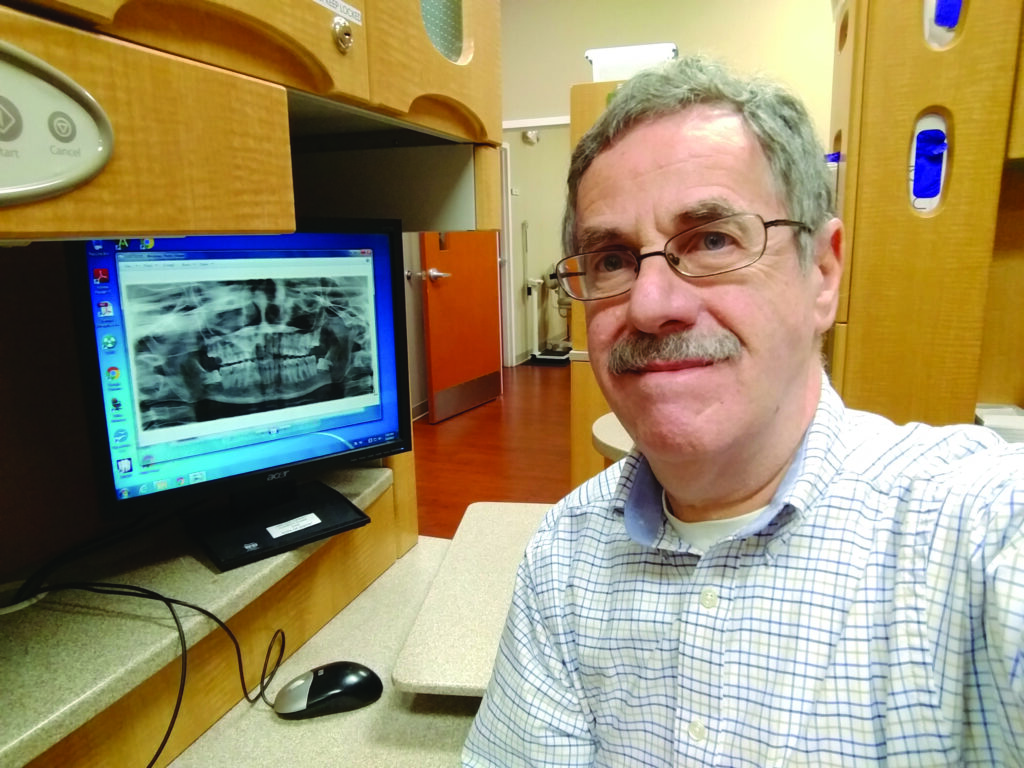By Dr. George Acs D.M.D., M.P.H.
Throughout my career, I have studied the impact of poor oral (dental) health on overall health and quality of life in children. Overwhelmingly, I have found when children return to optimal oral health, this restored their overall health and well-being, and improved the quality of life in children.
Since then, we have accomplished so much on behalf of children’s oral health on a national level, and certainly on the local level in Maryland.
Without a doubt, it was a real success story. But two years ago, when I returned to dental practice, I can tell you that I am absolutely stunned by what I’ve seen in adult patients served by Chesapeake Health Care on the Eastern Shore. As a Pediatric Dentist, I had never paused to think about dental health in adults, but I do now.
The problems that I see in adults are far worse than what I had seen in children.
Underinsured adults in Maryland have virtually no access to oral health care. In my own back yard, if they can’t get to Chesapeake Health Care, they go to our local hospital Emergency room. And they do so over, and over again. In the process, many of them never receive meaningful treatment or care.
What they receive is expensive inattention. Most dental Emergency room visits are for non-traumatic dental conditions, and in most cases, patients simply receive prescriptions for pain or antibiotics for infections. In the last two years alone, our local hospital, Peninsula Regional Medical Center, had nearly 4,000 Emergency Department dental visits.
These visits to the Emergency room incur significant expenses, result in no curative care, and perpetuate a cycle of antibiotic and prescription of opioid management of a problem that won’t go away, since there is rarely a place for patients to turn for actual care. It’s estimated that up to 79 percent of dental Emergency room visits could be diverted to community settings. Patients who visit an Emergency room with a non-traumatic dental condition would be better served in a dental office setting due to the availability of definitive care and the likelihood of continuity of care.
Most dental Emergency room visits are for non-traumatic dental conditions, and in most cases, patients simply receive prescriptions
for pain or antibiotics for infections. In the last two years alone, our local hospital, Peninsula Regional Medical Center, had nearly 4,000
Emergency Department dental visits.
There are significant cost benefits to having them treated in the dental office as well. An analysis in Maryland, for example, estimates that the state Medicaid program could save up to $4 million each year through programs to divert patients from the Emergency room to the dentist chair.
While much of what I have seen in adults is certainly the result of the lack of care available to them as children, there is no third chance, as there are only two sets of teeth.
But what we are talking about is far more than teeth. We now know that the chronic infection and inflammation associated with dental disease in adults worsens cardiac health, worsens diabetes complications, and certainly worsens quality of life.
I respectfully urge our Congress Members to take the same bold steps that were taken on behalf of children, and now help their parents and grandparents emerge from certain misery by passing House Bill 1158 to authorize Maryland Medical Assistance Program to provide Comprehensive Dental Benefits for Adults. With the passage of House Bill 1158, we have the potential for not only increasing access to dental care, but reducing the cost of Emergency department visits, and improving dental care and outcomes for both children and adults in Maryland.
My experience with children strongly suggests that a meaningful and positive difference in health outcomes can be made in adults, as well, and it starts here.

